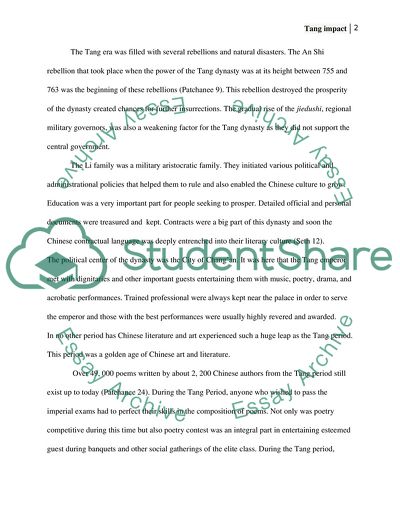How the Wars in Tang Impact on Du Fu's Poetry Literature review Example | Topics and Well Written Essays - 2500 words. https://studentshare.org/literature/1759683-the-wars-in-tang-impact-on-du-fus-poetries
How the Wars in Tang Impact on Du Fu'S Poetry Literature Review Example | Topics and Well Written Essays - 2500 Words. https://studentshare.org/literature/1759683-the-wars-in-tang-impact-on-du-fus-poetries.


